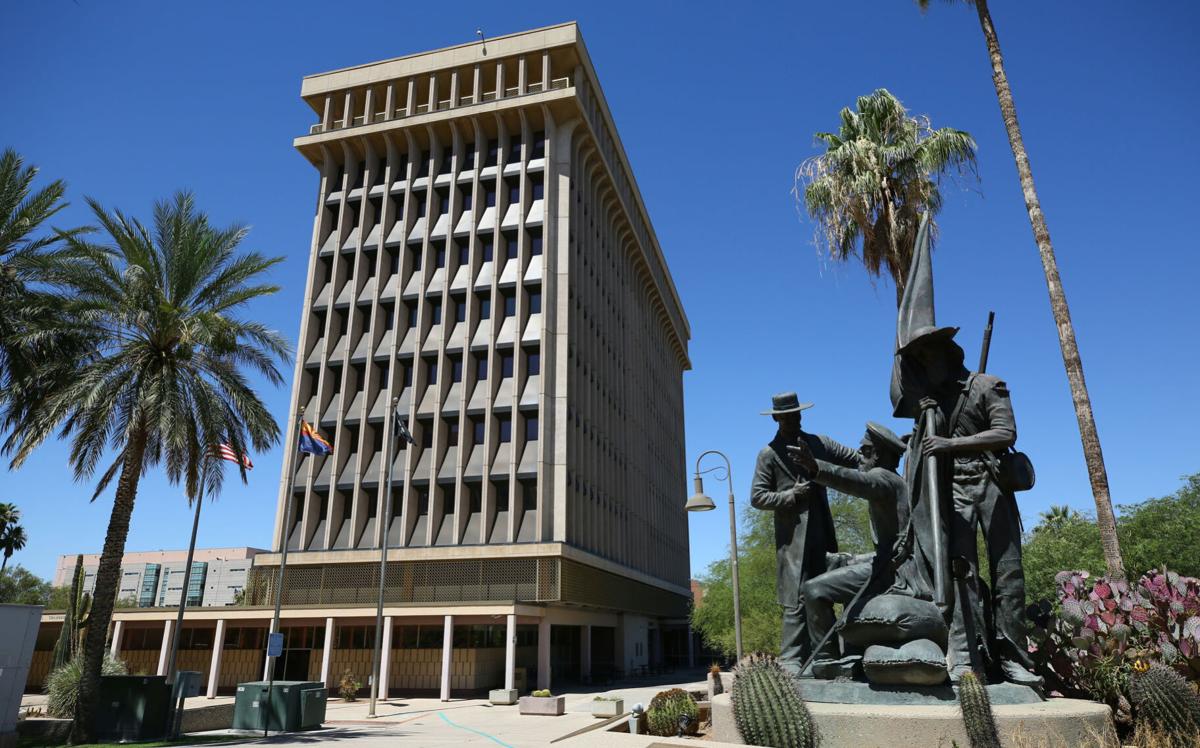The Tucson City Council approved a $2.3 billion budget for next fiscal year that includes targeted funding for maintaining city services while preparing for financial hardships down the road.
Council members unanimously adopted the 2025 fiscal budget during a special meeting on Tuesday night. It begins July 1.
No changes were made from the tentative budget mayor and council adopted on May 21, but specifics, such as the pay raises expected by city employees this year, needed to be bolted down prior to its formal approval.
About $44 million has been earmarked for the third year of the city’s investment plan. It is comprised of funding the city has above its necessary reserve levels to spend down over five years. This year’s plan includes money for public safety equipment and facilities, upgrading collector streets and a $4 million investment in transit.
Free transit fares
The city has included fare-free transit in its five-year forecast, through the 2028-2029 fiscal year.
According to an April 9 memo from City Manager Michael Ortega, funding for free fares will come for a combination of general funds and a partnership Tucson Medical Center, AHCCCS and use of the city’s hotel/motel surcharge.
Employee raises
Effective July 1, all active city employees will receive a 1.5% salary increase under a new compensation plan.
The budget adopted Tuesday night includes $10.8 million in-total for employee raises, but this 1.5% increase will only cost half that amount. This route was suggested multiple times by outgoing city manager Michael Ortega, who preferred a portion-distribution option because of the state flat tax that went into effect in 2021, which city budgets will especially feel beginning in the 2025-26 fiscal year, Ortega has said.
The unallotted $5.4 million will “be left for consideration of additional employee compensation increases later in the year,” Ortega said in a June 4 memo. The pay raises will not apply to elected officials, magistrates or election poll workers.
Sales tax
A placeholder of $40 million in revenues was included in the “General Government” department’s budget for this fiscal year, based on a potential ballot measure for a new city sales tax.
At their Feb. 6 meeting, mayor and council unanimously approved a special election for a proposed sales tax. Around that time, city manager Ortega made the case for Tucson officials to at least consider the city skip its role in RTA Next, the 20-year regional transportation plan that is set to go before voters in the spring of next year.
During that February meeting, Mayor Regina Romero said the tax would be used “to fund community investments to promote the quality of life” for Tucsonans. Specifics on such “community investments” have yet to be provided, even after Arizona Attorney General Kris Mayes okayed a July 30 special election date for the tax in late-March.
Drop in state funding, future budgets
The 2024-2025 fiscal year is expected to receive nearly $30 million less in state-shared tax revenues than last fiscal year. Ortega says that funding was already about $27 million less than what the city received two years ago.
The 2024-2025 budget is balanced, both financially and “structurally,” Ortega said on Tuesday. However, he said, revenue cuts from the state, due to its own budget deficit because of the flat tax are expected to the primary driver for what is forecast to be a $40 million operating deficit over the 2025-2026 and 2026-2027 fiscal years, combined.
“In order for us to balance the budget in (fiscal year 2026-2027), you’ll have about a $40 million hole. That $40 million hole will equate to somewhere between (300-400) positions,” Ortega said told the council in May. “The reality is when you look at our budget, when we are so heavy, if you will, on the cost of staffing, there’s really not going to be a lot of places to cut back. That concerns me greatly.”





